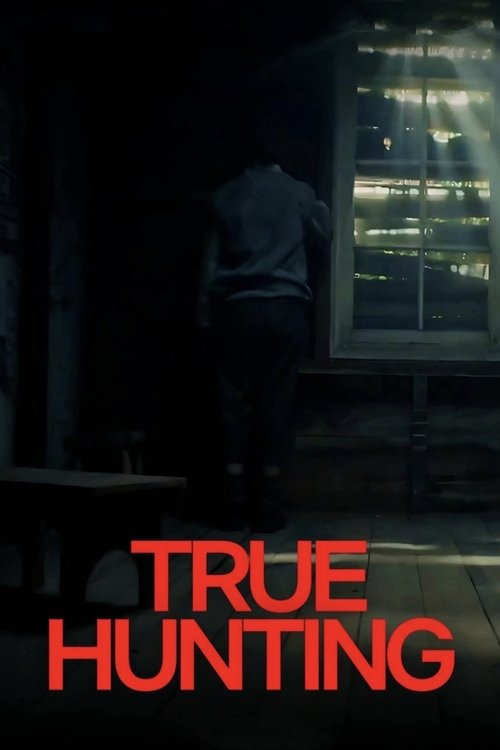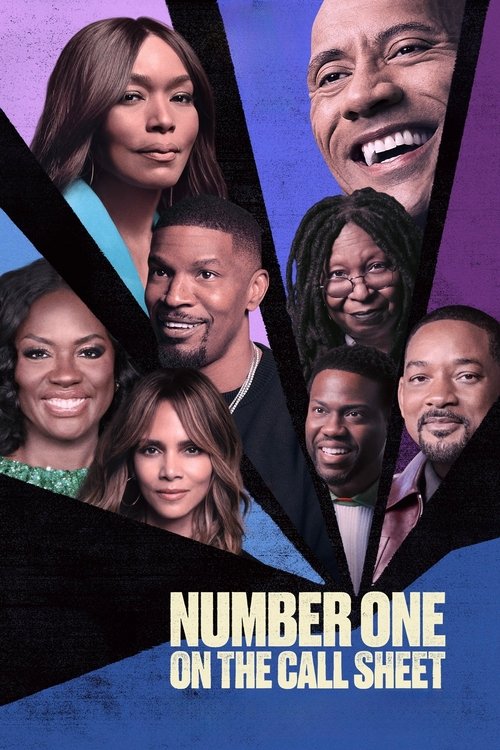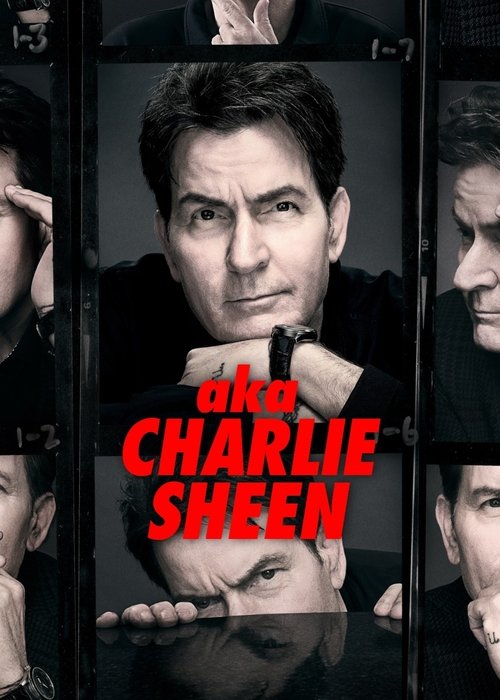
Ask Your Own Question
What is the plot?
The documentary Number One on the Call Sheet (2025) is a two-part series, each part focusing on a different group of Black Hollywood actors. The first part, directed by Reginald Hudlin, centers on Black leading men, while the second, directed by Shola Lynch, focuses on Black leading women. Both parts are structured as a series of candid interviews intercut with archival footage, behind-the-scenes clips, and personal photographs, with no fictionalized or dramatized scenes.
The documentary opens with a montage of classic Hollywood films, highlighting the rarity of Black actors in top-billed roles throughout cinema history. The narrator explains the significance of being "number one on the call sheet"--the industry term for the lead actor whose name appears first on the daily production schedule, symbolizing both prestige and responsibility.
The first major sequence features Denzel Washington, who recounts his early career struggles, including being typecast in supporting roles despite his training and ambition. He describes the moment he was offered the lead in Glory (1989), his emotional reaction to reading the script, and the pressure he felt to represent Black masculinity authentically. Washington details the physical and emotional demands of the role, including the rigorous training for battle scenes and the weight of portraying a historical figure. He explains how this breakthrough led to more leading opportunities, but also brought increased scrutiny from both the industry and the Black community.
Next, Dwayne "The Rock" Johnson discusses his transition from professional wrestling to acting, emphasizing the skepticism he faced as a non-traditional leading man. He describes his strategy of leveraging his physicality and charisma to secure roles that had not previously been written for Black actors, such as in the Fast & Furious franchise. Johnson shares a specific anecdote about negotiating for more substantial screen time and creative input, which marked a turning point in his career.
Idris Elba's segment follows, focusing on his decision to pursue roles in both the United States and the United Kingdom. He recounts the challenges of being perceived as "too British" for American roles and "too American" for British ones, and how he navigated these perceptions to land leading parts in Luther and The Wire. Elba describes the emotional toll of constantly proving himself in two industries, and the satisfaction of eventually being recognized as a versatile leading man.
Jamie Foxx speaks about his early days as a comedian and musician, and the pivotal moment when he was cast as Ray Charles in Ray (2004). He details the intensive preparation, including learning to play piano blindfolded and studying Charles's mannerisms. Foxx explains how winning the Academy Award for this role changed industry perceptions of him, but also created pressure to avoid being pigeonholed in biographical roles. He shares his decision to diversify his portfolio with action, comedy, and drama projects.
Kevin Hart's interview centers on his rise as a comedic leading man, starting with small stand-up gigs and eventually headlining major studio films. He describes the business acumen required to build his brand, including producing his own projects to ensure creative control. Hart recounts a specific instance where he turned down a role that relied on racial stereotypes, explaining how this decision reinforced his commitment to positive representation.
Eddie Murphy reflects on his early superstardom with films like Beverly Hills Cop and Coming to America, and the subsequent career slump he experienced in the 1990s. He describes the emotional impact of critical and commercial failures, and his decision to step back from the spotlight to focus on his family. Murphy details his comeback in the 2000s, including his return to stand-up and his role in Dreamgirls, which he credits with revitalizing his career.
Will Smith's segment covers his transition from television (The Fresh Prince of Bel-Air) to film, highlighting the risks he took in choosing projects like Independence Day and Men in Black. Smith discusses the pressure to succeed as a Black leading man in blockbuster films, and the strategic decisions he made to balance commercial appeal with artistic integrity. He shares a specific moment of conflict with a studio over creative differences, and how he negotiated for more input in the film's direction.
The first part concludes with a roundtable discussion among the interviewees, where they compare notes on the challenges of maintaining longevity in Hollywood, the importance of mentorship, and their hopes for the next generation of Black actors.
The second part, directed by Shola Lynch, begins with Angela Bassett discussing her early career and the significance of her role in What's Love Got to Do with It. She describes the physical and emotional intensity of portraying Tina Turner, including the vocal training and choreography required. Bassett explains how the role's success led to more opportunities, but also brought expectations that she would only play "strong Black women," and her decision to seek out more nuanced characters.
Whoopi Goldberg recounts her breakthrough in The Color Purple and the challenges of being a Black woman in comedy. She details the discrimination she faced in casting and the strategic choices she made to build a multifaceted career, including her work on Star Trek: The Next Generation and her Oscar-winning role in Ghost. Goldberg shares her decision to use her platform to advocate for greater diversity in Hollywood.
Gabrielle Union speaks about her experiences with typecasting and the importance of speaking out against industry inequities. She describes a specific incident where she challenged a director over the portrayal of her character, leading to script revisions. Union discusses her decision to produce her own projects to ensure authentic representation of Black women's stories.
Halle Berry reflects on her historic Oscar win for Monster's Ball and the mixed emotions she felt as the first Black woman to receive the award. She details the pressure to represent her race and gender, and the subsequent difficulty in finding roles that matched her ambition. Berry shares her decision to take on producing roles to create opportunities for herself and others.
Viola Davis discusses her journey from stage to screen, including her Tony-winning performance in Fences and her Oscar-nominated role in The Help. She describes the emotional weight of portraying complex, flawed characters, and her decision to prioritize roles that challenge stereotypes. Davis recounts a specific moment when she turned down a role that she felt was demeaning, despite the financial incentive.
Alfre Woodard shares her experiences as a character actor, emphasizing the importance of versatility and the challenges of being recognized for her craft rather than her race. She describes her decision to take on smaller, independent films that allowed her to explore a wider range of characters, and her advocacy for more inclusive casting practices.
Nia Long discusses her career in both film and television, including her role in The Best Man and her decision to balance commercial projects with more personal, independent work. She describes the challenges of being a Black woman in romantic leads, and her efforts to expand the types of stories told about Black women.
The documentary concludes with a joint discussion among the women, reflecting on the progress made and the work still to be done. They share personal anecdotes about supporting each other in the industry, the importance of visibility, and their hopes for future generations of Black actresses.
Throughout both parts, the documentary interweaves these personal stories with archival footage of their most iconic roles, behind-the-scenes moments from film sets, and candid reflections on the highs and lows of their careers. Each segment is marked by the subject's emotional honesty, detailing not only their professional achievements but also the personal sacrifices and pivotal decisions that shaped their paths to becoming "number one on the call sheet."
More TV Shows Like This
Browse All TV Shows →
What is the ending?
Short, simple narrative of the ending of "Number One on the Call Sheet":
The documentary concludes with powerful reflections from Black leading actors on the lasting impact of their careers, the progress made in Hollywood, and their hopes for the future of Black talent. It ends on a hopeful and celebratory note, emphasizing legacy, mentorship, and continued breaking of barriers.
Expanded narrative describing the ending scene-by-scene:
As Number One on the Call Sheet approaches its conclusion, the atmosphere is one of both retrospective reverence and forward-looking optimism. The final moments unfold with intimate, candid interviews featuring some of the biggest names in Hollywood's Black acting community.
The camera focuses first on Denzel Washington, whose presence throughout the documentary has served as a guiding blueprint. His measured tone and thoughtful expressions set a gravity to the reflections shared. Denzel speaks about legacy--not just the roles he has played, but the doors he believes he has helped open for future generations. His words are tinged with a quiet pride, but also a deep sense of responsibility, underscoring a theme woven throughout the film: the weight of being "Number One on the Call Sheet" is not only about personal success but about what one enables for others.
The scene transitions to Will Smith, who in his warm, deliberate manner, recounts the importance of intentionality. He talks about the strategic and sometimes difficult choices he made to shape his career path, emphasizing that being a leading actor in Hollywood takes more than talent--it demands clarity of purpose and unwavering focus. His reflection on his journey carries a message of empowerment that resonates deeply, illustrated by his story of overcoming setbacks and seizing opportunities uniquely suited to his vision.
Next, Kevin Hart's segment brings lightness and humility. He speaks about the camaraderie among the actors, the support system they form for one another, and the absence of ego that characterizes their shared space. This camaraderie is portrayed through footage of smiles, mutual respect, and shared stories, reinforcing the documentary's emphasis on community rather than competition.
One particularly poignant scene revisits Eddie Murphy's landmark film Boomerang. Through archival footage and Eddie's own reflections, the documentary highlights how Murphy leveraged his star power to elevate Black talent behind and in front of the camera. The film's revolutionary nature in the early '90s is revisited to demonstrate how such strategic moves have a ripple effect, influencing the industry's openness to Black-led projects. This acts as a thematic capstone illustrating the power of agency and representation.
The final visuals are of Halle Berry, Viola Davis, and Angela Bassett discussing the women's half of the documentary. Their reflections echo the themes from the men's conversations--resilience, legacy, and hope. The camera lingers on their faces, conveying the depth of years of hard work and the satisfaction derived from breaking barriers.
The documentary closes with a montage of various actors--both elders and rising stars--sharing brief but heartfelt hopes for the future. The final frames show them walking confidently onto sets, into auditoriums, and toward new scripts, symbolizing the ongoing journey. The narration ties these images together, stating that being "Number One on the Call Sheet" means more than a top billing: it means paving the way for the generations that follow.
This carefully paced ending leaves viewers with a sense of completion, honoring the struggles and triumphs of Black actors in Hollywood while celebrating the progress and the bright future ahead.
This ending not only encapsulates the documentary's subject--the journey and impact of Black leading actors--but does so by artfully intertwining personal stories with broader industry history, leaving a lasting impression of legacy, hope, and empowerment.
Is there a post-credit scene?
The TV documentary series Number One on the Call Sheet (2025) does not have a post-credit scene. It is a two-part documentary released on Apple TV+ on March 28, 2025, focusing on the experiences of Black leading men and women in Hollywood, featuring interviews with prominent actors and filmmakers. There is no indication from available sources or official releases that a post-credit scene exists for either part of the series.
What breakthrough moments do the leading Black actors discuss in Number One on the Call Sheet?
The documentary features candid interviews where leading Black actors share their breakthrough moments that marked significant turning points in their careers, highlighting how these moments helped them achieve top-billed status in Hollywood films.
How do the actors describe their strategies for success in Hollywood?
In the film, actors reveal their personal strategies for success, including how they navigated challenges, sustained their careers, and positioned themselves as leading stars in the industry.
What perspectives do the actors offer on the future of Black talent in Hollywood?
The documentary includes the actors' insights and hopes regarding the future opportunities, representation, and potential for the next generation of Black talent in Hollywood.
Which industry insiders and legends contribute additional insights in the documentary?
Besides the actors, the film features commentary from industry insiders such as Reuben Cannon, Nina Shaw, Matthew Johnson, Robi Reed, and Quentin Tarantino, as well as legendary actors like Morgan Freeman, Denzel Washington, and Laurence Fishburne, who discuss historic firsts and the evolving role of Black lead actors.
How does the documentary explore the differences and experiences between Black leading men and women in Hollywood?
The two-part documentary separates its focus by gender: part one centers on Black leading men, featuring stars like Denzel Washington and Will Smith, while part two focuses on Black leading women, including Halle Berry and Viola Davis, exploring their unique experiences, challenges, and achievements in Hollywood.
Is this family friendly?
The TV show Number One on the Call Sheet (2025) is a documentary celebrating the journeys of Black leading actors in Hollywood through candid interviews, highlighting their breakthroughs, challenges, and successes. It features well-known actors like Jamie Foxx, Kevin Hart, and Halle Berry and offers inspirational and motivational content about their craft and industry experiences.
Regarding family-friendliness, the documentary format and the nature of the content--focused on career journeys and personal stories from actors--suggest it is generally suitable for a broad audience, including older children and teens. There are no indications of explicit content such as graphic violence, strong language, or adult themes typically flagged as inappropriate for children. However, since it covers real-life struggles and industry challenges, some sensitive viewers or younger children might find discussions about obstacles, discrimination, or personal hardship potentially upsetting, though these are handled in a respectful, candid manner.
No specific mention or warnings about objectionable or upsetting scenes for children or sensitive viewers are noted in the available descriptions or reviews. Therefore, while the documentary is appropriate for general audiences, parents might want to consider the emotional maturity of younger children regarding topics of professional and personal struggles shared by the actors.
In summary:
- Family-friendly: Yes, broadly suitable, particularly for teens and adults interested in Hollywood and acting careers.
- Potentially sensitive content: Discussions about personal and professional challenges, discrimination, or industry hardships that might be emotionally impactful for younger or sensitive viewers.
- No graphic violence, explicit language, or adult content reported.
This documentary is best viewed with some parental guidance for younger children if they are sensitive to discussions about real-life struggle and perseverance.
Does the dog die?
The TV show "Number One on the Call Sheet," a 2025 documentary film about Black leading actors in Hollywood, does not involve any dogs or storylines about dogs dying. It is a two-part documentary featuring interviews with prominent Black actors discussing their careers and experiences, without any fictional plot elements such as pets or animals dying.
Therefore, the question of whether a dog dies in this TV show is not applicable. There is no mention nor indication that any dog appears or dies in "Number One on the Call Sheet."





















